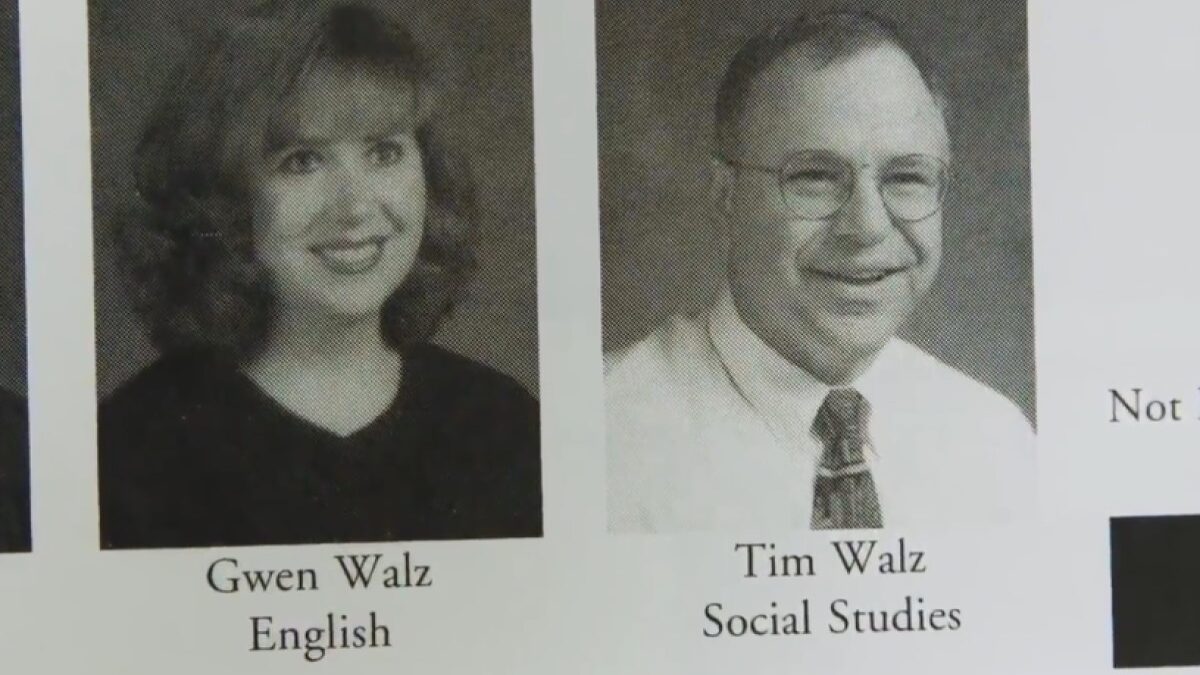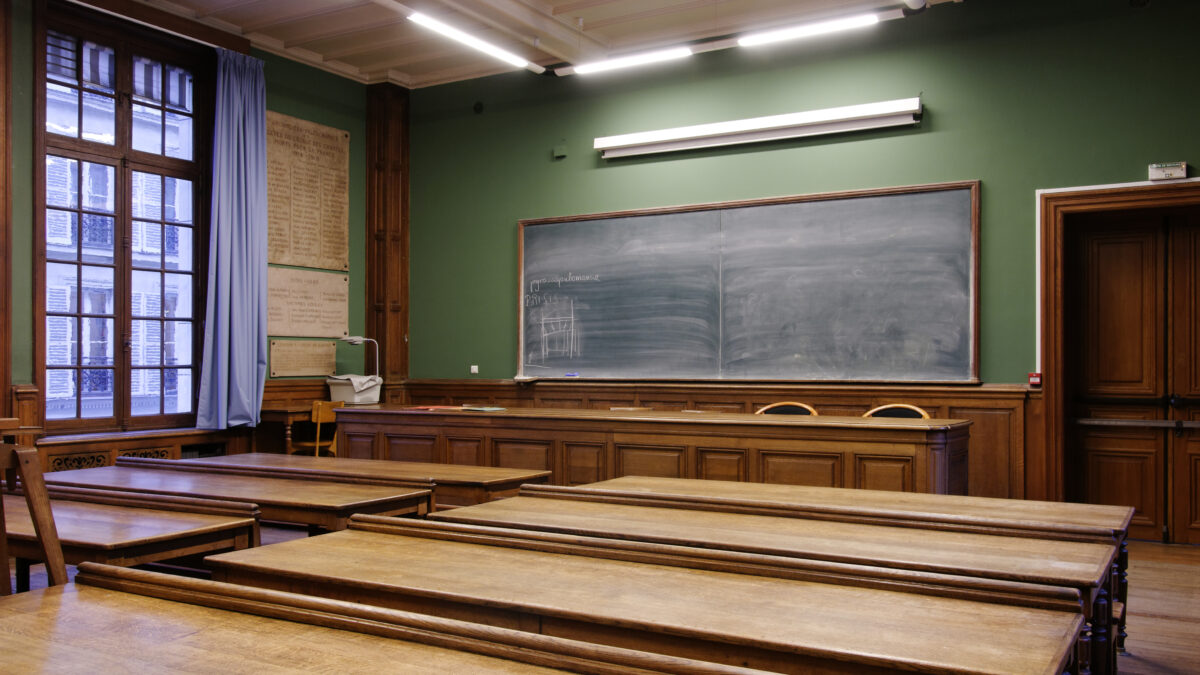
When a California court struck down the state’s teacher tenure system last month, it sparked a renewed interest in how to hire the best teachers. If it’s finally possible to pry the least-effective teachers from their sinecures, as reformers see it, new and better teachers can take their spots. So how should we go about recruiting, selecting, and retaining this new wave of all-stars?
It’s not so easy. Even without the tenure obstacle, putting the best teachers in the classroom is a more challenging problem than many reformers will admit. One of the most common reformist prescriptions is raising teacher pay to attract stronger applicants. The logic seems simple, even obvious. But raising teacher pay will not work. In fact, it could be counter-productive. The reason lies not just with the well-known difficulty in predicting who will be a good teacher, but also with the entrenched hiring system of public schools.
Teachers Already Earn Too Much
Everyone from Laura Bush to former Washington DC Superintendent Michelle Rhee to teachers union president Randi Weingarten has called for raising pay. They never mention that we’ve tried it already. Contrary to public perception, the average public school teacher already receives total compensation that is greater than what he or she could earn in the private sector.
But don’t teachers earn lower average wages than college graduates in most other professions? Yes, but four-year degrees are not all created equal. For example, education—the degree held by around half of public school teachers—is among the least challenging fields of study. As measures of ability go, a degree in education cannot be equated with a degree in, say, computer science or engineering. That’s part of the reason why teachers typically receive a lower wage both before they enter teaching and after they leave for another field. Combine decent wages with a generous benefits package—guaranteed pensions, retiree health care, and job security—and teacher compensation is, on average, above market levels.
So the public is already paying for more highly-qualified teachers than it is getting. If the skills of the teacher workforce have yet to match the level of current compensation, it is not clear how an additional raise would produce better results.
Schools Turn Down the Brightest Applicants
Why has increasing teacher pay not led to a corresponding increase in teacher skills? Vanderbilt University economist Dale Ballou has an answer. Simply put, even when schools are offered highly-skilled teachers, they don’t seem to want them. Writing in the Quarterly Journal of Economics, Ballou demonstrated that many of the most attractive teaching applicants—those who graduate from more competitive colleges, earn higher GPAs, or hold degrees in specialized areas such as math or science—schools often reject them in favor of less-impressive candidates who took the traditional route of majoring in education. An education degree was generally preferred even for applicants preparing for a secondary-school position.
No one knows for sure why this happens, but perhaps it’s the institutional culture of public schools. The principals and superintendents who do the hiring are themselves the product of standard teacher training—attending a large, middling university and majoring in education. These administrators tend to hire teaching applicants whose training resembles their own. By contrast, principals who have unusually strong academic records tend to choose higher-skilled teacher applicants.
In any case, the naively dismissive reaction to Ballou’s findings would go something like this: Sure, the public-school hiring bureaucracy operates inefficiently, but raising teacher pay will at least add more skilled people to the applicant pool. Even if public schools hire applicants randomly, the higher-quality pool necessarily means higher-quality teachers will eventually find their way into the classrooms, right?
Probably not.
Higher Pay Could Lower Teacher Quality
Ballou and fellow economist Michael Podgursky of the University of Missouri have shown that higher pay without reforms could actually lower teacher quality. Their argument starts with the observation that increasing pay reduces the number of job openings (because fewer teachers will quit or retire), and increases the number of new applicants (because the salary is more attractive). This necessarily lowers the chance that any given teaching applicant will receive a job offer.
That reduced probability may discourage certain would-be applicants from making the costly investment of time and money in becoming certified for teaching, especially if they do not perceive that schools favor them in the hiring process. And, unfortunately, the best-qualified applicants are probably most discouraged.
How so? Well, imagine two young people who are thinking about going into teaching. Ken is a brilliant college student who may pursue engineering if he cannot land a job as a high school science teacher. Sandy is a cheerful and energetic undergrad, but she is not the strongest student, especially when it comes to math. She will most likely work as an administrative assistant if she does not become an elementary school teacher. (The most common non-education job education majors hold is indeed administrative assistant, according to Census Bureau data.)
Now imagine that public schools raise teacher pay across the board. Both Ken and Sandy are initially thrilled about the prospect of earning more as teachers. But then both begin to think about their reduced chances of landing a teaching job, as a flood of new teaching applicants compete for a smaller number of openings. To Sandy, this is not a big concern. Even if she is ultimately unsuccessful with her teaching application, her time spent preparing will not have been wasted. Whether Sandy majored in education or sociology, she will likely get her admin job.
But consider Ken’s perspective. If he pursues education, he is potentially wasting valuable time and money, either by displacing his engineering studies or by delaying his entry into the workforce. In economic terms, Ken’s opportunity cost is much higher than Sandy’s. If teacher pay is raised, Ken’s expected payoff from pursuing teaching—the higher teaching salary multiplied by the lower probability of getting a teaching job—may actually decline. So Ken focuses on engineering instead. At the end of this story, raising teacher pay has increased the size of the applicant pool but lowered its quality at the same time.
Now, if Ken knew that public schools would jump at the chance to hire bright students with strong academic backgrounds, he may not be discouraged from investing in a teaching career at all. But as we have seen, Ken is perfectly justified in fearing that school administrators do not value high-ability candidates like himself. And even if Ken possessed non-academic traits that might make him a good teacher—patience, empathy, dedication, et cetera—it would be risky to count on proving these hard-to-measure qualities on a job application, especially for someone without much prior work experience.
So, What’s the Answer?
So if pay increases are not the answer, what is? Only root-and-branch reform. In a recent paper, economists Douglas Staiger and Jonah Rockoff noted that public schools structure their hiring exactly backwards. Potential teachers must obtain certifications and licenses—a process that discourages some workers like Ken from applying in the first place—before being hired. Once hired, however, teachers quickly earn tenure almost as a matter of course.
A more rational hiring system would feature reduced entrance requirements—perhaps just a college degree in any area, with no certification requirements except for upper-level courses—then very strict standards for earning tenure based on actual classroom performance over a few years. This is not exactly a revolutionary idea. Most hiring managers in other fields are under no illusion that they can foretell employee performance based on credentials alone, which is one reason why tenure barely exists in the private sector. Even the most famously tenured profession—academia—has a “publish or perish” system for winnowing talent after the initial hiring process.
Public school systems need fundamental changes in how they operate to improve teacher quality, and abolishing tenure just scratches the surface. The creeping emphasis on credentials must be reversed. School administrators must be willing to hire promising applicants who never received the standard education-school training. Objective evaluation systems must be adopted and refined. All parties must become comfortable with a process that will increase teacher turnover. And, finally, the public must maintain sober expectations about the value of high-quality teachers, understanding that their effectiveness is naturally limited by the abilities and family situations of the students themselves. To effect all these changes, pundits and policymakers must move beyond their “pay teachers more” mantra. The idea is attractive for its simplicity, but in reality it is no solution at all.
Jason Richwine is a public policy analyst in Washington, DC.









